Instant vs. Ground Coffee: What’s the Difference?
The big debate, the great controversy, the major dispute. We’re answering what we can only assume is your most burning question: what’s the difference between instant and ground coffee? Let’s break down the distinctions between the two.
Is Ground Coffee the Same as Instant Coffee?
Ground and instant coffee are two very distinct beings. Put simply, ground coffee consists of finely crushed coffee beans whilst instant coffee undergoes a unique process to become soluble granules.
Ground coffee requires brewing equipment, like a cafetière, V60, or moka pot, whilst instant coffee dissolves directly in water, no equipment necessary.
There's typically a disparity when it comes to flavour and quality, with ground coffee usually coming out on top, and yet over half the UK population still turn to instant coffee as their go-to at home. It's why we created our very own Craft Instant Coffee, giving instant a bit of love so you can make a café-worthy brew in seconds. Grind Instant Coffee is made using the same speciality-grade Arabica beans as our ground coffee, and it's carefully crafted to taste just as fresh and delicious.
What Is Ground Coffee?
Ground coffee is the product of carefully-roasted coffee beans, which are then finely ground to varying levels of coarseness. Not all coffee beans are created equal, obviously, otherwise our range of different blends would be obsolete.
The taste of ground coffee largely depends on the natural flavour characteristics of the coffee beans used. These characteristics are the result of where and how the beans were farmed, processed, and harvested.
The better quality the bean, the better quality the brew. We know this for certain because we source all our beans from amazing growers who have decades of coffee knowledge and expertise and they taste really, really good.
The degree of roasting, whether light, medium, or dark, also influences the final flavour of your brew, from the bright and clean notes of lightly-roasted beans to the bold and smoky undertones of dark roasts. It's why we always tailor the roast of our beans to enhance the aroma, body, and taste of the blend.
The beans are then ground depending on your brewing method. Unlike instant coffee, ground coffee will not dissolve in water. Instead, it needs time to diffuse its flavour into the water (as it does in a Cafetière) during a brewing process.
Our ground coffee is an omni-grind, meaning it's suitable for brewing in a cafetière, moka pot, or filter. For extra freshness, we recommend buying whole bean coffee and grinding the beans at home.
Most ground coffees will use Arabica beans, which tend to have a more complex flavour profile and bolder tasting notes. See our Ultimate Guide to Ground Coffee for all the info.
What Is Instant Coffee?
On the flipside, instant coffee takes, quite literally, an instant route to your cup. It still begins with roasted coffee beans, but these tend to be Robusta beans rather than Arabica. After roasting, the beans are brewed into a concentrated coffee liquid.
This liquid is then carefully dehydrated to form soluble coffee granules. The result is a product that dissolves easily in hot water, offering a quick and convenient way to enjoy coffee without the need for brewing equipment. However, this process often impacts the final flavour and aroma, resulting in a milder, less exciting cup of coffee when compared to freshly brewed ground coffee.
To combat this drop in quality, we only use speciality-grade Arabica beans for our instant blends. We then expertly roast these beans before carefully brewing and slowly freeze-drying them to make them soluble in both hot and cold water.
Can You Use Ground Coffee as Instant?
Sort of, but not really. While the primary purpose of ground coffee is for traditional brewing methods, such as drip brewing, cafetière, or espresso machines, you can technically use ground coffee as a makeshift instant coffee substitute.
To use ground coffee as an instant coffee alternative, you’d need to follow these steps:
- Measure the grounds: determine the desired strength of your coffee and measure the appropriate amount of ground coffee. Typically, a standard ratio is one to two tablespoons of coffee per 250ml hot water, but you can adjust it to your taste.
- Heat water: heat water to near-boiling point, ideally between 90°C to 96°C. Emphasis on "near-boiling" here. Please do not burn the coffee. We're begging you.
- Prepare your cup: place the measured ground coffee into a coffee cup or mug.
- Add hot water: pour the hot water over the ground coffee, ensuring that all the coffee grounds are saturated.
- Stir and steep: give the mixture a quick stir to agitate the grounds, then let it steep for approximately 4 minutes. This allows the coffee to infuse the water.
- Filter or decant: after steeping, you can filter the coffee by pouring it through a fine-mesh sieve. Alternatively, if you don't mind some sediment, you can let the grounds settle and carefully sip your coffee, leaving the grounds at the bottom of the cup.
Using ground coffee as instant coffee may result in a slightly different flavour profile than traditional instant coffee. The texture may also be coarser due to the presence of coffee grounds, and there may be some sediment in your cup. In other words, it’s not how we recommend you drink your coffee.
But there are some super simple ways to use ground coffee, minus the mess, for a delicious, high-quality brew that’s more than just a caffeine hit. Check out our how to brew guides for our quick and easy methods, or shop barista-quality equipment.
Differences between Instant and Ground Coffee
Brew Method
The brewing process for instant coffee and ground coffee differs significantly in terms of time and method. Instant coffee is, unsurprisingly, the faster option: simply dissolve it in hot water (or cold water, too, if you're using Grind Instant Coffee).
In contrast, ground coffee requires a little more time and some tools. You can use methods like V60 drip filters, espresso machines, or, our personal favourite, the beloved cafetière (French press). If you appreciate a great cup of coffee, it’s worth it.
Quality
Another key distinction between instant and ground coffee tends to be quality: there’s a reason you wouldn’t get instant coffee served to you in a café. Instant coffee has a reputation for being a little more bitter and a lot more bland than ground coffee because it's so often made in mass using poor quality beans. It's why it so often gets trashed by coffee connoisseurs, but we think those coffee connoisseurs just haven't found the right instant.
Taste
Instant coffee is usually made from Robusta beans, known for their bitter and intense flavour compared to the milder, more complex Arabica beans used for ground coffee.
Additionally, instant coffee typically struggles to retain the essential oils found in freshly ground coffee, which contribute to a smoother and less acidic taste, leaving you with a slightly sour cup that could do with a huge helping of milk and sugar. Ground coffee generally has a more sophisticated, fresher taste.
Caffeine Content
If caffeine content is a top priority for you, ground coffee generally holds the edge. The brewing process allows for better caffeine extraction from the coffee grounds, resulting in a higher caffeine content than instant coffee. So, if you need an extra push to get you through the morning (and if you don’t, please tell us your secrets), ground coffee is the one. Although, it is possible to get great tasting decaf ground coffee, too.
Grind Ground Coffee & Instant Coffee
Coffee-from-home, sorted. Explore our range of ground coffee, available in five expertly-roasted blends, or our instant coffee, available in our smooth barista blend or our decaf blend.
We also make a bunch of other stuff that lets you enjoy barista-quality, sustainable coffee at home.
Shop our bean-to-cup coffee machine made in partnership with Sage.
Shop our whole bean & ground coffee.
Shop our compostable Nespresso® compatible coffee pods.
Shop our ready-to-drink iced coffee cans.
Shop our stainless steel cafetière.
Shop our coffee accessories and equipment.

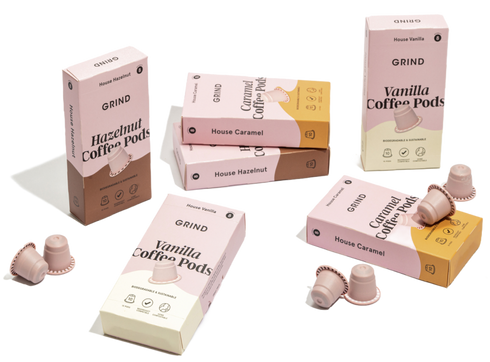


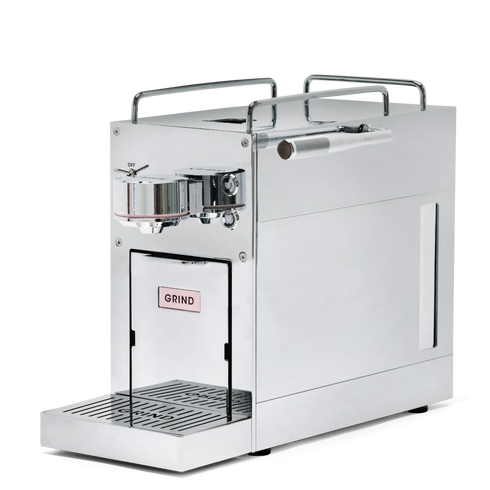
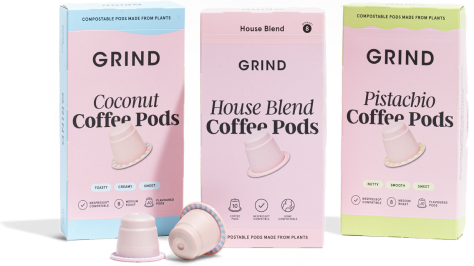
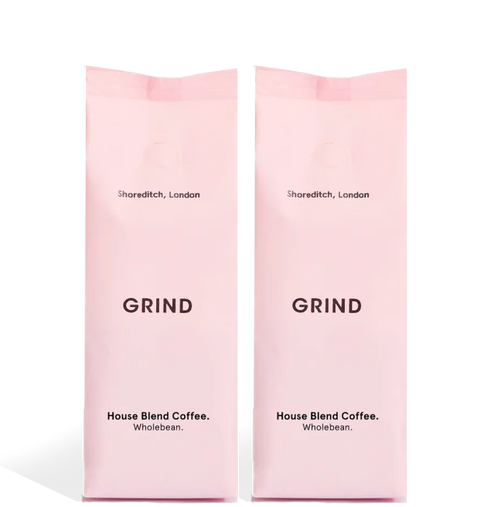
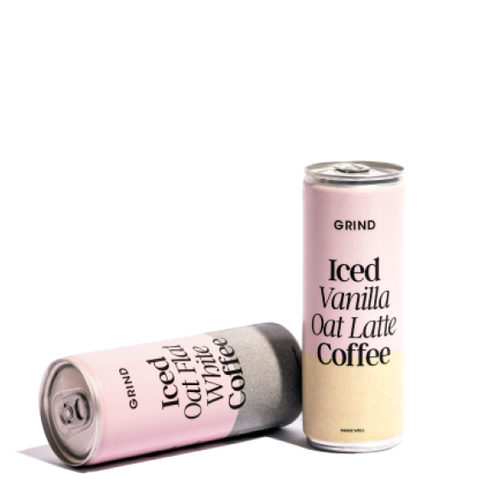
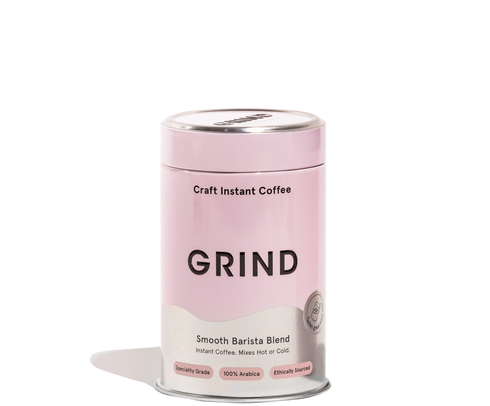

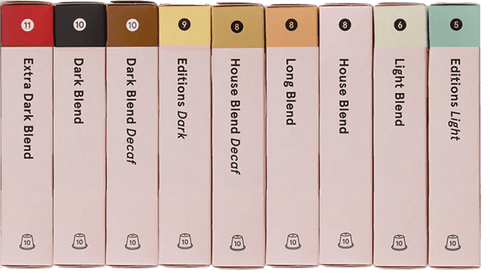

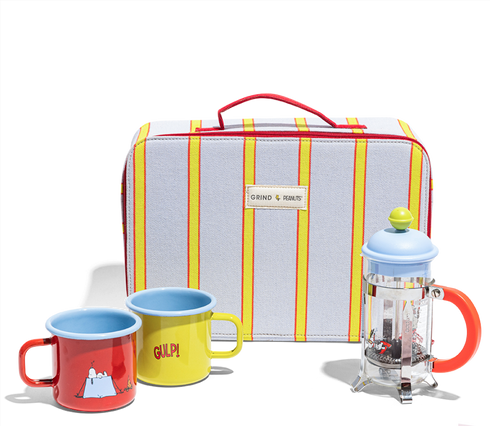

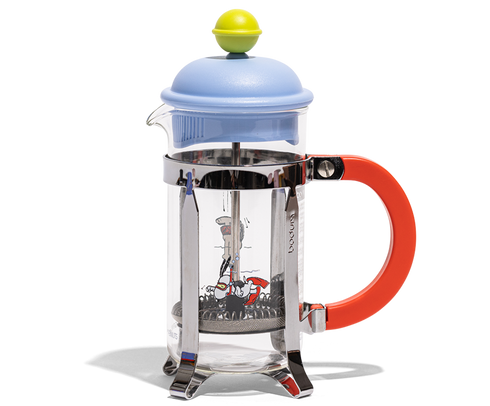




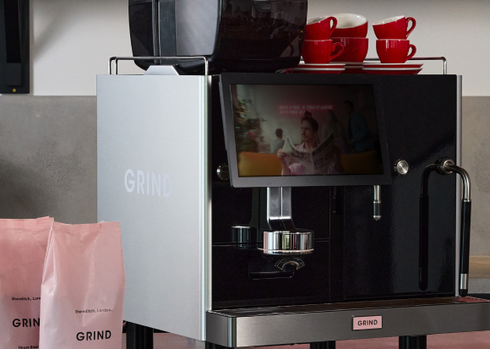
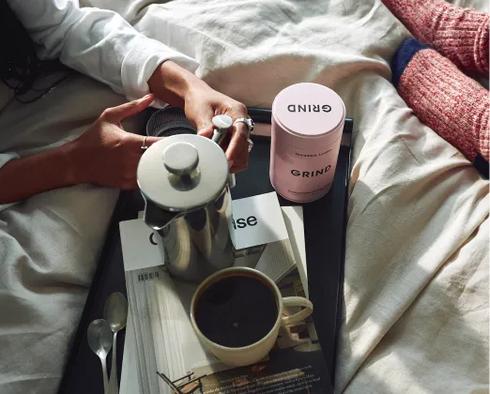
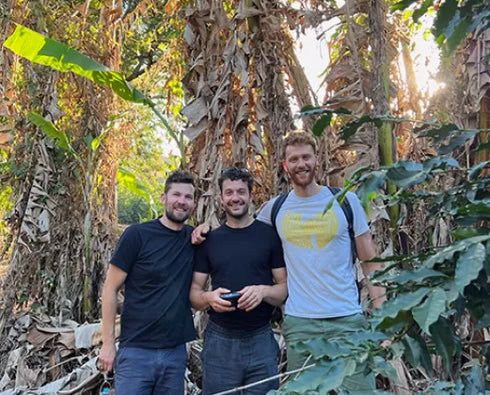
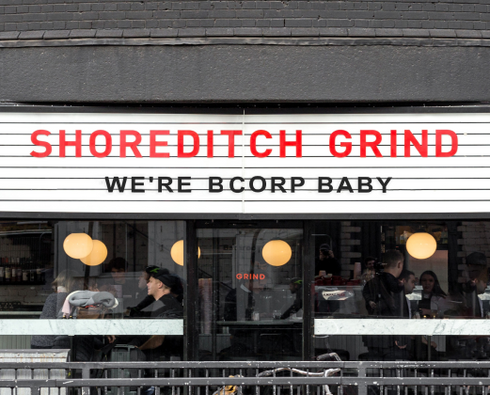

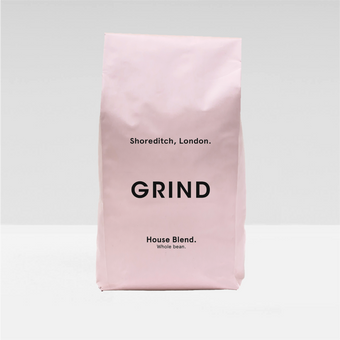
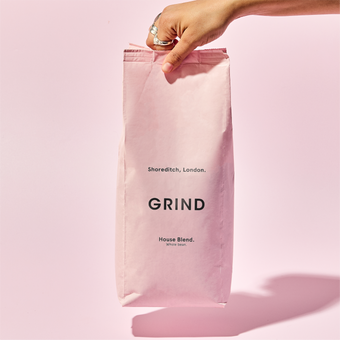
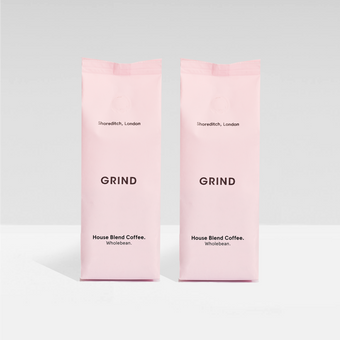

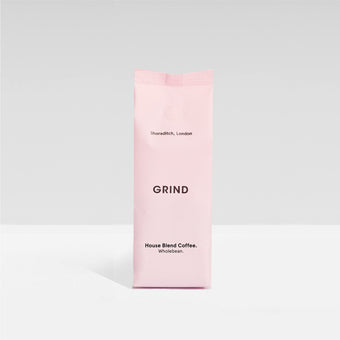
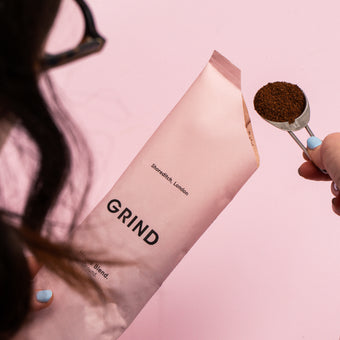
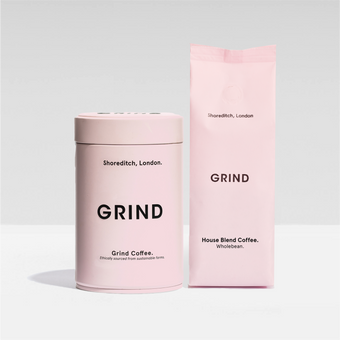
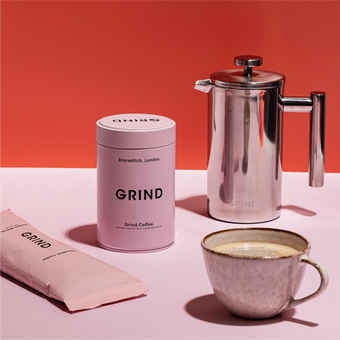
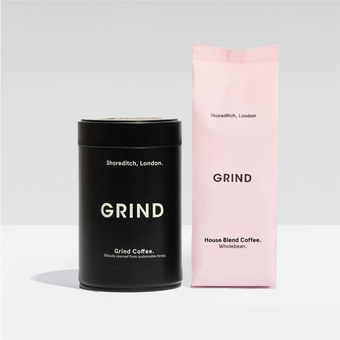
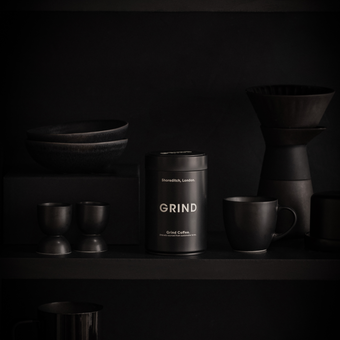
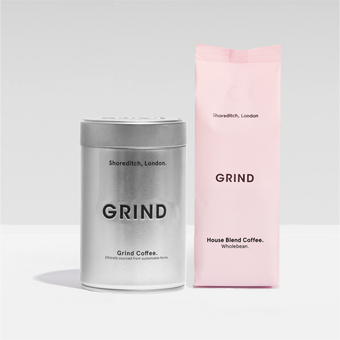
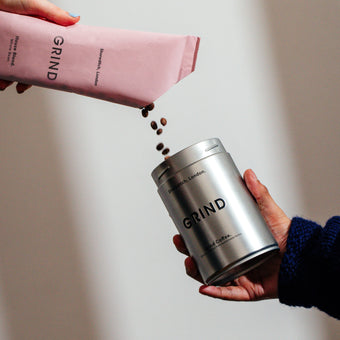
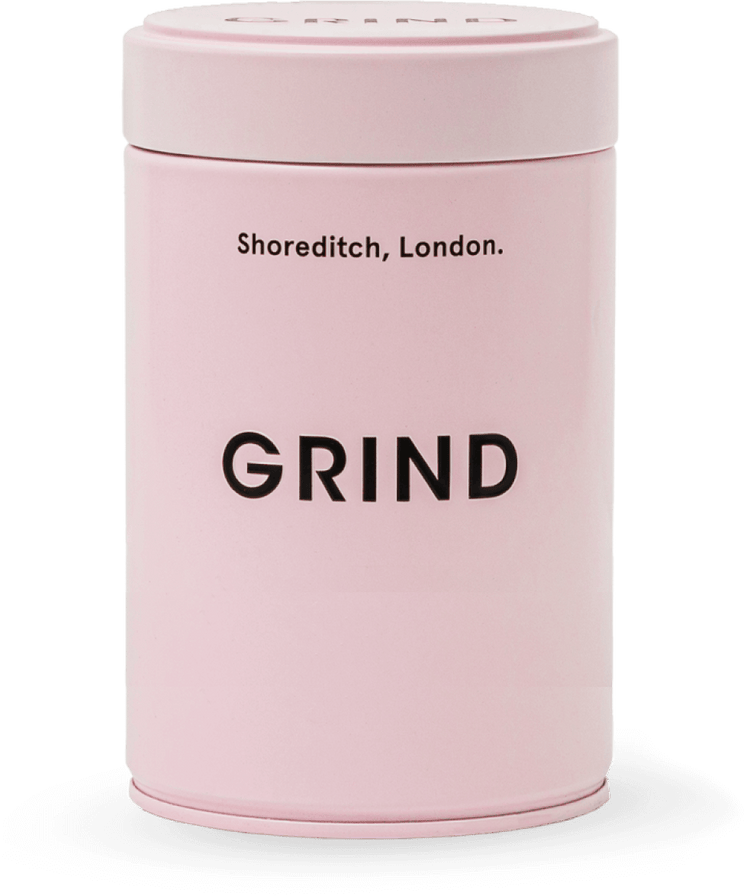
Comments